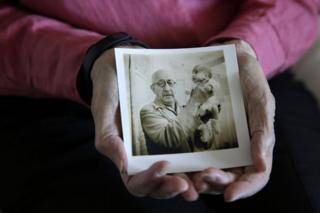Doctor Saves Premature Baby s Life Who Becomes Paramedic and Saves His Life 30 Years Later LifeNews.com
Now HERE'S a cool story. A paramedic who helped save the life of a doctor, trapped in a burning car wreck,
finds out later it's the same doctor who worked nonstop to save his own life when he was a baby -- born premature with only a 50% chance of survival. What a case of what comes around goes around -- 30 years later!
Now HERE'S a cool story. A paramedic who helped save the life of a doctor, trapped in a burning car wreck,
finds out later it's the same doctor who worked nonstop to save his own life when he was a baby -- born premature with only a 50% chance of survival. What a case of what comes around goes around -- 30 years later!


